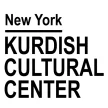Goran in Two English Translations
by Dastan Galali
 Abdulla Goran (1904-62) is considered the first Kurdish modernist poet. Known for his revolutionary poetic techniques, he was fluent in English and translated poetry from English into Kurdish Sorani. Goran was also significantly influenced by the English Romantic poets William Wordsworth, John Keats, Lord Byron, and Percy Bysshe Shelley.
Abdulla Goran (1904-62) is considered the first Kurdish modernist poet. Known for his revolutionary poetic techniques, he was fluent in English and translated poetry from English into Kurdish Sorani. Goran was also significantly influenced by the English Romantic poets William Wordsworth, John Keats, Lord Byron, and Percy Bysshe Shelley.
One year Goran was picnicking with friends in the Hawraman area, a Kurdish-populated region located in the south and east of Kurdistan. While he was there, he wrote a travelogue in poetic form, titled “گەشت لە هەورامان.” The word گەشت is translated as “tour” by Edmonds and “Journeys” by Omar and Cohen. A Kurdish dictionary shows that گەشت means both “tour” and “journey,” but in this poem, it does not convey that meaning. it is best translated as “Picnicking in Hawraman.” Although the word سەیران is commonly used to mean “picnicking,” in poetry we cannot translate words literally—we have to take into consideration the context of the poem and the message the poet wants to convey. A close reading shows that the poet was indeed picnicking there, and he himself stated that he was.
The date of the travelogue is unknown, but it consists of ten poems, one of which is reproduced here.
دیمەنی ڕێگا و بان
کۆمەڵە شاخێک سەخت و گەردن کەش
ئاسمانی شینی گرتۆتە باوەش؛
سەرپۆشی لووتکەی بەفری زۆر سپی
بە دارستان ڕەش ناودۆڵی کپی
جۆگەی ئاوەکان تیایا قەتیس ماو:
هەر ئەڕۆن ناکەن پێچی شاخ تەواو
هاوار و هاژەی کەف چەڕێنی چەم
بۆ تەنیایی شەو لایەلایەی خەم!
توولەڕێی باریک، تووناوتوون پشکن
ڕێبوار ئەخاتە ئەندێشەی بێ بن
ناو ڕێگا تەق تەق، لاڕێ بەردی زل
کە هێشتا گەردوون پێی نەداوە تل!
گا سەرەوژوورە، گا سەرەوخوارە
تاڵی و شیرینیی دنیای ڕێبوارە!
Abdulla Goran. Diwani Goran (Tehran: Paneez, 2014), 117.
The poem was first translated in 1957 by the British diplomat Cecil J. Edmonds, who had spent time in south Kurdistan.
View of the Open Road
A mountain mass, wild and defiant,
Has gathered blue heaven in its embrace;
The mantle of its peak very white snow,
Dark with forest its silent dales.
Waters imprisoned in their runnels
Flow on, nor cease their windings round the hills;
The roar and hiss of foam, the shrill song of the brook,
Lullabies for grief in the solitude of night.
The narrow footpath, feeling its way from tunnel to tunnel,
Throws the wayfarer into anxiety without end;
On the track rocky stairways, on the side great boulders
That heaven has not yet sent rolling down.
Now it is up hill, now it is down hill,
The bitter and sweet of the wayfarer’s world.
—Cecil J. Edmonds, Kurds, Turks, and Arabs:
Politics, Travel, and Research in North-eastern Iraq
(London: Oxford University Press, 1957), 172.
A second translation was made in 2022 by Feryad Fazil Omar and Mitch Cohen:
Landscape of Paths and Trails
A mountain range, wild and defiant,
Holds the blue heavens in its arms.
A headscarf of brilliant white snow swathes its peak,
Dark are its forest in the canyons, so still.
Waters, captive in their channels,
Stream and twist forth around slopes.
The roar and hiss of the foam,
the yelling song of the brook,
Lullabies of grief in the night of solitude.
The wanderer makes his way on the narrow path
from tunnel to tunnel in endless fear,
The terraces resound on the stony paths,
Boulders loom, threatening on the slope;
The heavens have not yet set them tumbling down.
Now the path ascends, now it descends,
Bitterness and sweetness in the wanderer’s world.
—Feryad Fazil Omar and Mitch Cohen,
Bleeding Rose (Berlin: Institute of Kurdish Studies, 2022), 82.
The title: “Landscape of Paths and Trails” is the better translation because the poet is not merely viewing the area but is actually examining its beauty.
Line 3, the word سەرپۆش : Omar and Cohen translated it as “headscarf,” but that is not quite accurate. The word “mantle” better conveys the meaning, as the mountain in Kurdish literature symbolizes strength and preeminence. Someone wearing a headscarf in those days would not have been considered powerful.
Line 5, the word جۆگە : Omar and Cohen mistranslated it as “channels.” The word “runnel” is more appropriate.
Line 6, the word شاخ: Edmonds mistranslated it as “hills”; it could better have been translated as “slopes.”
Line 7, the phrase هاوار و هاژەی کەف چەڕێنی چەم: “Shrill song” fits better than “yelling song.”
Line 8, the phrase بۆ تەنیایی شەو : The translation “in the night of solitude” is better than “in the solitude of night.”
Line 10, the phrase ئەندێشەی بێ بن : Edmonds translated it inaccurately as “anxiety without end”; it should have been “endless fear.”
The last line, the word ڕێبوار : Edmonds translated it as “wayfarer” while Omar and Cohen used “wanderer.” The word “wanderer” implies someone who makes a spontaneous trip simply to enjoy the scenery, whereas “wayfarer” suggests someone who travels for more serious matters. Thus “wanderer” is the more accurate translation, as the poet’s ultimate objective in this poem is to paint a picture of his picnicking for the reader to enjoy.
 Dastan Galali is a literary translator and academic based in Hewlêr.
Dastan Galali is a literary translator and academic based in Hewlêr.














